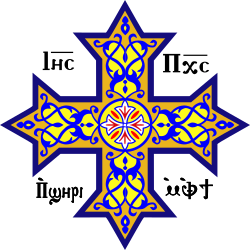This list of Copts includes notable Copts figures who are notable in their areas of expertise. For saints, please refer to List of Coptic saints .
Contents
- Performing arts
- Businessmen
- Clergy and theologians
- Lawyers and judges
- Social activists
- Engineers
- Scientists
- Architects
- Historians and coptologists
- Journalists and writers
- Musicians
- Painters and artists
- Politicians
- Physicians
- Athletes
- Chefs
- Others
- See also
| Part of a series on the |
| Copts |
|---|
| Culture |
| Regions |
| Denominations |
| |
